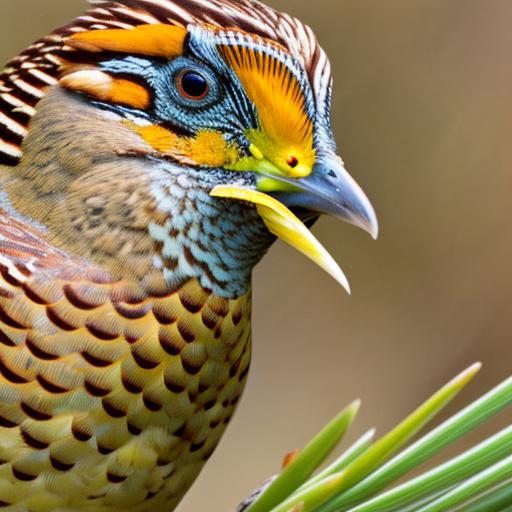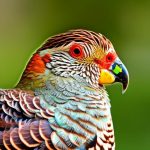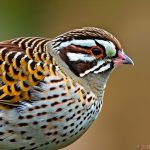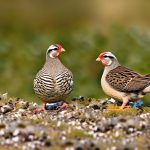When it comes to housing and space requirements for coturnix quail, it’s important to provide them with a comfortable and safe environment. Quails are social birds and should be kept in groups, so it’s essential to have enough space to accommodate their natural behavior. A good rule of thumb is to provide at least 1 square foot of space per bird, but more space is always better. A larger enclosure will allow the quails to move around freely, exercise, and exhibit natural behaviors such as dust bathing and foraging.
The housing for coturnix quail should also provide protection from predators and the elements. A sturdy wire mesh enclosure with a solid roof is ideal for keeping quails safe from predators such as raccoons, foxes, and birds of prey. The enclosure should also have good ventilation to prevent the buildup of ammonia from their droppings. Additionally, it’s important to provide a secure nesting area for the quails to lay their eggs and seek shelter. The nesting area should be dark and secluded to provide a sense of security for the birds. Overall, the housing for coturnix quail should prioritize their safety, comfort, and natural behaviors.
Quails are ground-dwelling birds, so it’s important to provide them with a suitable substrate in their enclosure. A layer of soft bedding such as straw or wood shavings will provide a comfortable surface for the quails to walk on and will also absorb droppings and moisture. It’s important to regularly clean and replace the bedding to maintain a clean and hygienic environment for the quails. Additionally, providing perches and hiding spots in the enclosure will allow the quails to exhibit natural behaviors and reduce stress. Overall, the housing and space requirements for coturnix quail should prioritize their safety, comfort, and natural behaviors.
Key Takeaways
- Coturnix quail require at least 1 square foot of space per bird in their housing to prevent overcrowding and stress
- A balanced diet for coturnix quail includes a high protein feed and access to grit and calcium supplements
- Regular cleaning of the quail housing and providing clean water can help prevent common health issues like respiratory infections
- Coturnix quail can start laying eggs as early as 6 weeks old, and proper management of lighting and nesting areas can maximize egg production
- Gentle handling and socialization from a young age can help coturnix quail become more tame and less stressed
- Installing predator-proof fencing and providing shelter can help protect coturnix quail from potential threats
- Regularly cleaning the quail housing and providing fresh bedding can help maintain a healthy and comfortable environment for coturnix quail
Proper nutrition and feeding schedule for coturnix quail
Proper nutrition is essential for the health and well-being of coturnix quail. A balanced diet will ensure that the quails receive the necessary nutrients to support their growth, egg production, and overall health. A good quality commercial quail feed is a convenient option that provides a balanced mix of grains, protein, vitamins, and minerals. It’s important to choose a feed specifically formulated for quails to meet their unique nutritional requirements.
In addition to commercial feed, coturnix quail can also benefit from supplemental treats such as fresh fruits, vegetables, mealworms, and greens. These treats can be offered in moderation as a supplement to their regular diet. It’s important to avoid feeding quails with foods that are high in salt, sugar, or fat, as these can be harmful to their health. Fresh, clean water should always be available to the quails, especially during hot weather or when they are laying eggs.
When it comes to feeding schedule, coturnix quail should have access to food throughout the day. This will allow them to eat according to their natural feeding behavior and prevent competition for food among the birds. It’s important to monitor their food intake and adjust the amount of feed offered based on their appetite and body condition. Additionally, providing grit or small stones will help the quails grind their food in their gizzards, aiding in digestion. Overall, proper nutrition and feeding schedule are essential for the health and well-being of coturnix quail.
Health and disease prevention for coturnix quail
Maintaining the health of coturnix quail is essential for their overall well-being and productivity. Regular observation of the birds is important to detect any signs of illness or injury early on. Common signs of illness in quails include lethargy, decreased appetite, abnormal droppings, respiratory issues, or changes in behavior. If any of these signs are observed, it’s important to consult with a veterinarian who is experienced in treating poultry.
Preventing diseases in coturnix quail starts with providing a clean and hygienic environment. Regular cleaning of the enclosure, including removing droppings and soiled bedding, will help prevent the buildup of harmful bacteria and parasites. Additionally, providing clean water and regularly sanitizing feeders and waterers will help prevent the spread of diseases. Quarantining new birds before introducing them to an existing flock can also help prevent the spread of diseases.
Another important aspect of disease prevention is biosecurity measures. This includes limiting access to the quail enclosure to only essential personnel, as well as preventing contact with wild birds or other animals that may carry diseases. It’s also important to practice good hygiene by washing hands and changing clothes before and after handling the quails. Overall, maintaining the health of coturnix quail requires regular observation, a clean environment, and strict biosecurity measures.
Breeding and egg production management for coturnix quail
Breeding and egg production management are important aspects of raising coturnix quail for both meat and egg production. When it comes to breeding, it’s important to provide a suitable environment that encourages natural mating behavior. This includes providing a balanced diet, adequate space, and a comfortable nesting area for the birds. It’s also important to maintain a proper male-to-female ratio to prevent aggression among the birds.
Coturnix quail are prolific layers and can start laying eggs as early as 6-8 weeks of age. To maximize egg production, it’s important to provide a high-quality commercial feed that is specifically formulated for laying quails. Additionally, providing supplemental calcium in the form of crushed oyster shells will help support strong eggshells. It’s also important to provide a consistent lighting schedule to stimulate egg production, typically 14-16 hours of light per day.
Collecting eggs regularly is important to prevent them from being damaged or soiled by the birds. It’s also important to store the eggs properly in a cool and dry environment until they are ready to be used or incubated. If incubating the eggs for hatching, it’s important to maintain proper temperature and humidity levels throughout the incubation period. Overall, breeding and egg production management for coturnix quail requires providing a suitable environment for breeding behavior, a balanced diet for egg production, and proper egg handling techniques.
Handling and socialization of coturnix quail
Proper handling and socialization are important aspects of raising coturnix quail that can help reduce stress and improve their overall well-being. When handling quails, it’s important to approach them calmly and gently to avoid causing unnecessary stress. It’s best to handle them from a young age to get them used to human interaction. This can be done by spending time near their enclosure, talking to them softly, and offering treats from your hand.
It’s important to avoid sudden movements or loud noises when handling quails, as these can startle them and cause stress. When picking up a quail, it’s best to approach them from the side rather than from above, as this can mimic predatory behavior and cause fear in the birds. Supporting their body with both hands will help them feel secure and prevent them from struggling or flapping their wings.
Socialization among the quails themselves is also important for their well-being. Providing enough space in their enclosure will allow them to establish a social hierarchy without overcrowding or aggression. It’s also important to monitor their behavior regularly to ensure that there is no bullying or aggression among the birds. Overall, proper handling and socialization of coturnix quail are important for reducing stress and improving their overall well-being.
Predator prevention and safety measures for coturnix quail
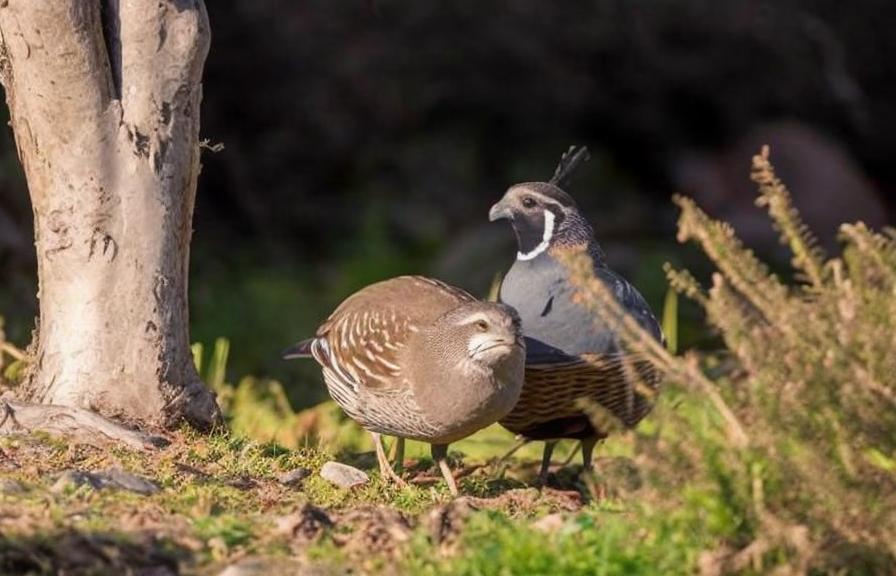
Protecting coturnix quail from predators is essential for their safety and well-being. Common predators of quails include raccoons, foxes, birds of prey, snakes, and domestic pets such as cats and dogs. To prevent attacks from predators, it’s important to provide a secure enclosure with sturdy wire mesh that is buried underground to prevent digging from predators.
Additionally, providing a solid roof on the enclosure will prevent attacks from birds of prey such as hawks or owls. It’s also important to inspect the enclosure regularly for any signs of damage or weakness that could allow predators to gain access. Installing motion-activated lights or sound devices can also help deter nocturnal predators such as raccoons.
In addition to protecting against predators, it’s important to provide a safe environment within the enclosure itself. This includes removing any potential hazards such as sharp objects or toxic plants that could harm the quails. Providing hiding spots within the enclosure will allow the quails to seek shelter if they feel threatened by predators or other stressors.
Overall, predator prevention and safety measures for coturnix quail are essential for protecting them from harm and ensuring their well-being.
Tips for maintaining a clean and comfortable environment for coturnix quail
Maintaining a clean and comfortable environment is essential for the health and well-being of coturnix quail. Regular cleaning of the enclosure is important to prevent the buildup of harmful bacteria and parasites that could affect the birds’ health. This includes removing droppings, soiled bedding, and any leftover food on a regular basis.
Providing clean water at all times is essential for keeping the quails hydrated and healthy. Waterers should be checked regularly for cleanliness and functionality, as well as refilled with fresh water as needed. Additionally, providing shade in the enclosure will help protect the quails from extreme temperatures and reduce stress.
It’s also important to monitor the temperature within the enclosure, especially during hot weather or cold spells. Providing adequate ventilation will help regulate temperature and prevent the buildup of ammonia from droppings. In colder climates, providing supplemental heat sources such as heat lamps or heated pads can help keep the quails warm during winter months.
In addition to maintaining a clean environment, providing enrichment activities such as perches, dust baths, and hiding spots will help keep the quails stimulated and reduce stress. This can include providing branches or logs for perching, as well as shallow containers filled with sand or dust for dust bathing.
Overall, maintaining a clean and comfortable environment for coturnix quail requires regular cleaning, providing clean water and shade, monitoring temperature, and providing enrichment activities for mental stimulation.
Regular cleaning is essential to prevent the buildup of waste and bacteria, which can lead to health issues for the quail. Providing clean water and shade is important for their hydration and protection from the sun. Monitoring temperature is crucial to ensure that the quail are not exposed to extreme heat or cold. Additionally, providing enrichment activities such as perches, dust baths, and foraging opportunities is important for their mental stimulation and overall well-being. By attending to these various aspects of care, quail owners can create a clean and comfortable environment that promotes the health and happiness of their birds.
If you’re interested in learning how to keep coturnix quail, you may also want to check out this informative article on farmhouse chicken coop from PoultryWizard. It provides valuable insights into creating a comfortable and safe environment for your quail, ensuring their well-being and productivity.
FAQs
What are coturnix quail?
Coturnix quail, also known as Japanese quail, are small game birds that are commonly raised for their eggs and meat. They are known for their fast growth and high egg production, making them popular among small-scale farmers and homesteaders.
What do coturnix quail eat?
Coturnix quail are omnivorous and will eat a variety of foods including commercial quail feed, seeds, grains, insects, and green leafy vegetables. It’s important to provide them with a balanced diet to ensure their health and productivity.
How do you keep coturnix quail?
Coturnix quail can be kept in a variety of housing setups including cages, aviaries, or coops. They require protection from predators, access to clean water, and a balanced diet. Proper ventilation and temperature control are also important for their well-being.
How do you care for coturnix quail eggs?
Coturnix quail eggs should be collected daily to prevent them from being damaged or eaten by the birds. They should be stored in a cool, dry place with the pointed end facing downwards. Quail eggs have a shorter shelf life compared to chicken eggs, so they should be consumed or incubated within a few weeks of being laid.
What are the benefits of keeping coturnix quail?
Keeping coturnix quail can provide a sustainable source of protein through their eggs and meat. They are relatively low maintenance and can be raised in small spaces, making them a suitable option for urban and suburban environments. Additionally, their eggs are considered a delicacy and can be sold for a premium.
Meet Walter, the feathered-friend fanatic of Florida! Nestled in the sunshine state, Walter struts through life with his feathered companions, clucking his way to happiness. With a coop that’s fancier than a five-star hotel, he’s the Don Juan of the chicken world. When he’s not teaching his hens to do the cha-cha, you’ll find him in a heated debate with his prized rooster, Sir Clucks-a-Lot. Walter’s poultry passion is no yolk; he’s the sunny-side-up guy you never knew you needed in your flock of friends!

